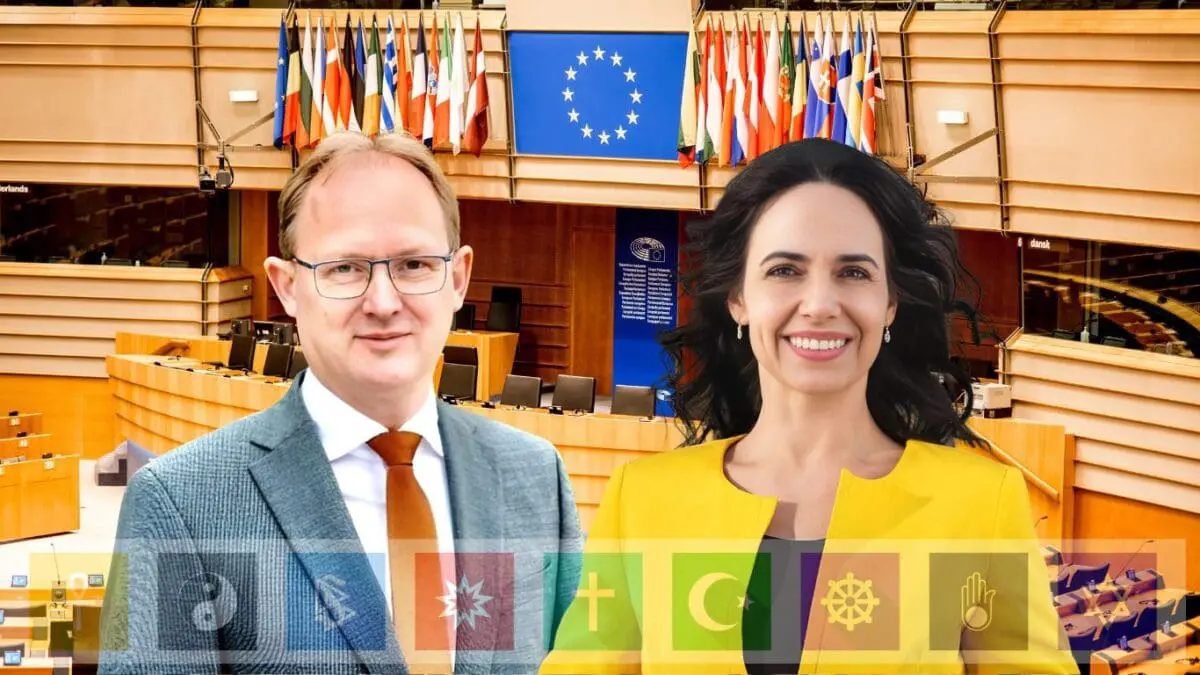Brussels – In a decisive move to enhance the protection of religious freedom across Europe and beyond, the European Parliament has re-established the Intergroup on Freedom of Religion or Belief. This initiative, confirmed during the conference of parliamentary leaders on December 11, 2024, aims to address the urgent need for safeguarding the rights of individuals facing persecution due to their faith.
Co-chaired by Bert-Jan Ruissen (SGP, ECR) and Miriam Lexmann (EPP), the intergroup seeks to raise awareness about the plight of those persecuted for their beliefs. Ruissen expressed his optimism about the intergroup’s revival, stating, “This intergroup provides us with an important platform in the European Parliament to advocate for the persecuted church. I see that this work is desperately needed, as many remain unaware of the severity of the situation.” Lexmann added, “From China to Belarus, the freedom of religion or belief continues to decline. It is crucial that the European Union, and particularly the Parliament, pays special attention to monitoring and actively supporting this fundamental freedom globally.”
The establishment of this intergroup comes at a critical time when violations of religious freedom are on the rise. A recent letter from various civil society organizations and religious groups highlighted the alarming increase in attacks against individuals based on their religion or belief. The letter calls for the continuation and strengthening of the intergroup, emphasizing that the right to freedom of religion or belief is a cornerstone of democratic societies, as enshrined in Article 10 of the Charter of Fundamental Rights of the European Union.
The letter outlined specific instances of persecution, including the use of blasphemy laws in northern Nigeria, the killing of Christians in Manipur, India, the closure of churches in Algeria, and attacks on Ahmadiyya communities in Pakistan. It also notes the plight of Yazidis in Iraq, Baha’is in Iran, and the discrimination faced by atheists and humanists in Nigeria and Pakistan due to apostasy laws. These examples underscore the urgent need for robust responses from the European Parliament and its members. While the letter did not mention violations within Europe, it goes without saying that Europe must focus on practising what we preach, and the better we do inside the more leverage the EuParl will have when condemning situations outside Europe.
The intergroup, which has been active since 2004, comprises members from various political factions, reflecting a broad commitment to the cause. Following each election, the intergroup must be re-established with support from at least three different factions. Ruissen noted the collaborative effort that led to the intergroup’s revival, stating, “We have come together with colleagues from diverse factions and successfully garnered support from my own faction (the ECR), as well as the liberals (Renew) and the Christian Democrats (EPP).”
One of the intergroup’s key initiatives will be to appoint a new EU envoy for religious freedom, as the mandate of the voluntary without salary and without team current envoy, Frans van Daele, expired at the end of November. The group will also maintain communication with the EU‘s diplomatic services to prioritize religious persecution in global diplomatic discussions.
The letter from civil society organizations emphasizes that the continuation of the intergroup is essential for empowering MEPs to protect the right to freedom of religion or belief through their “on-the-ground” work in affected countries and faith communities. It calls for a united front among religious and belief groups, urging them to sign a letter addressed to the political groups in the European Parliament to highlight the persecution they face globally and the necessity of such a platform.
As the intergroup embarks on its mission, it faces the challenge of ensuring that the voices, also of minority religions, within Europe are heard and that their rights are protected. The commitment of MEPs from various political backgrounds to this cause is a hopeful sign that the European Parliament is ready to take a stand for diversity and inclusion.
In a world where freedom of religion or belief is increasingly under threat, the re-establishment of the Intergroup on Freedom of Religion or Belief is a crucial step toward safeguarding the rights of all individuals, regardless of their faith. The European Parliament must continue to champion this cause, ensuring that the principles of diversity and protection for minority religions are upheld not just in rhetoric, but in action.







